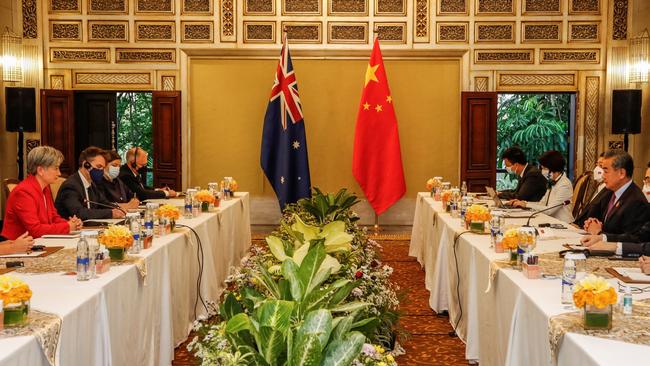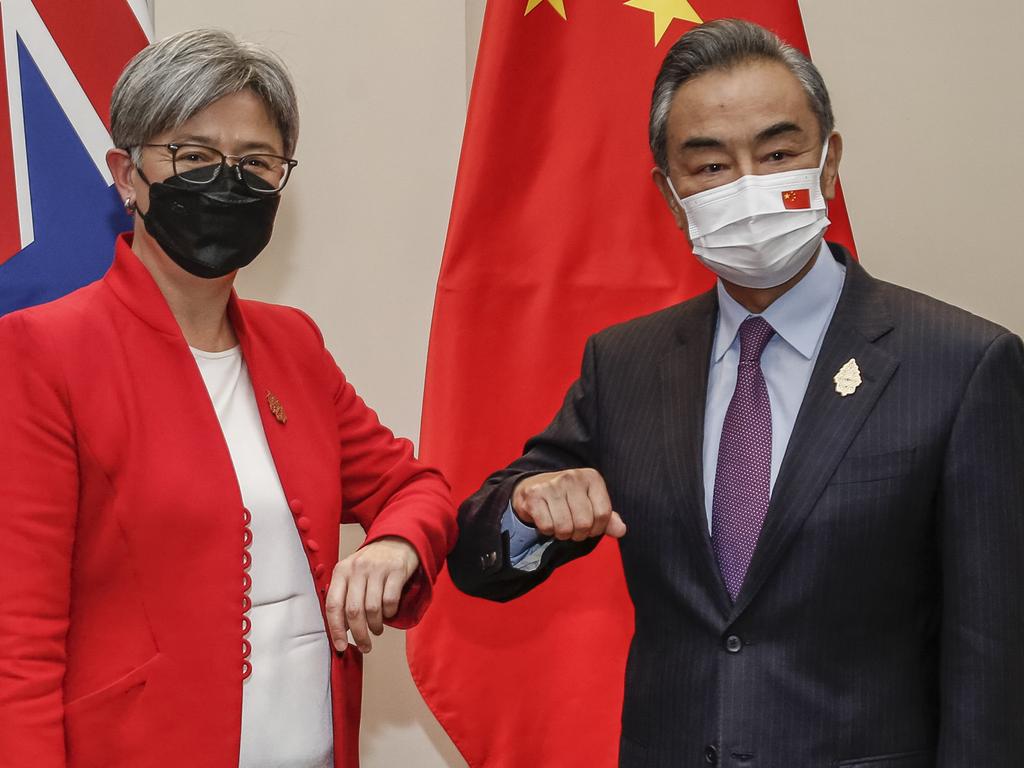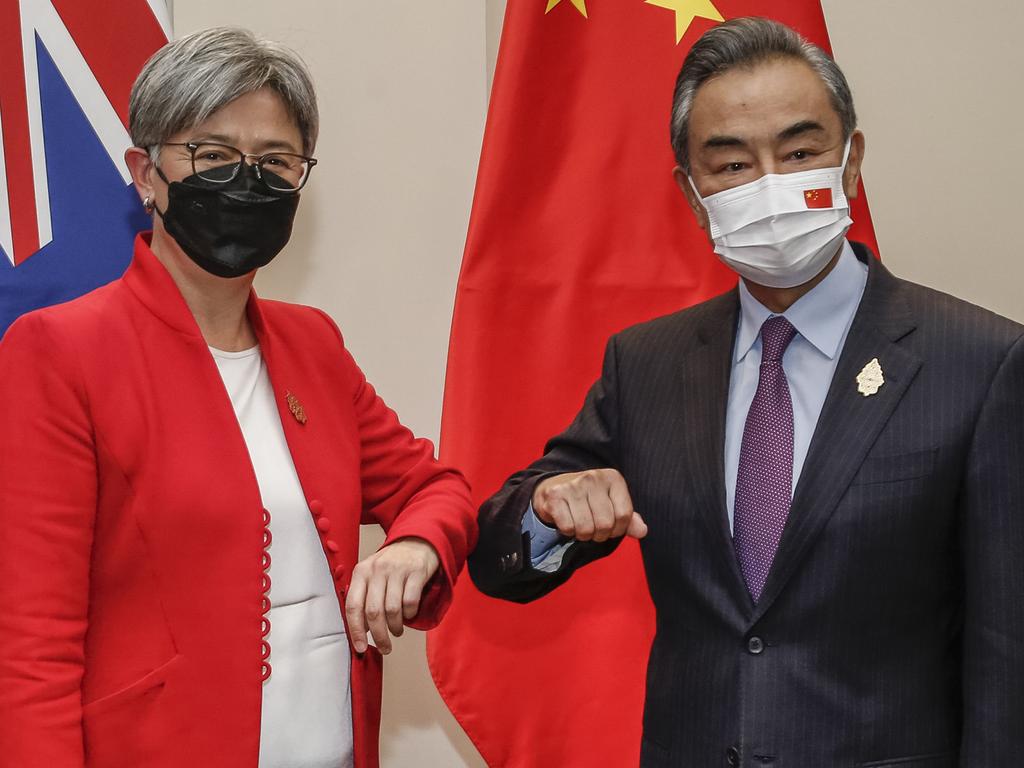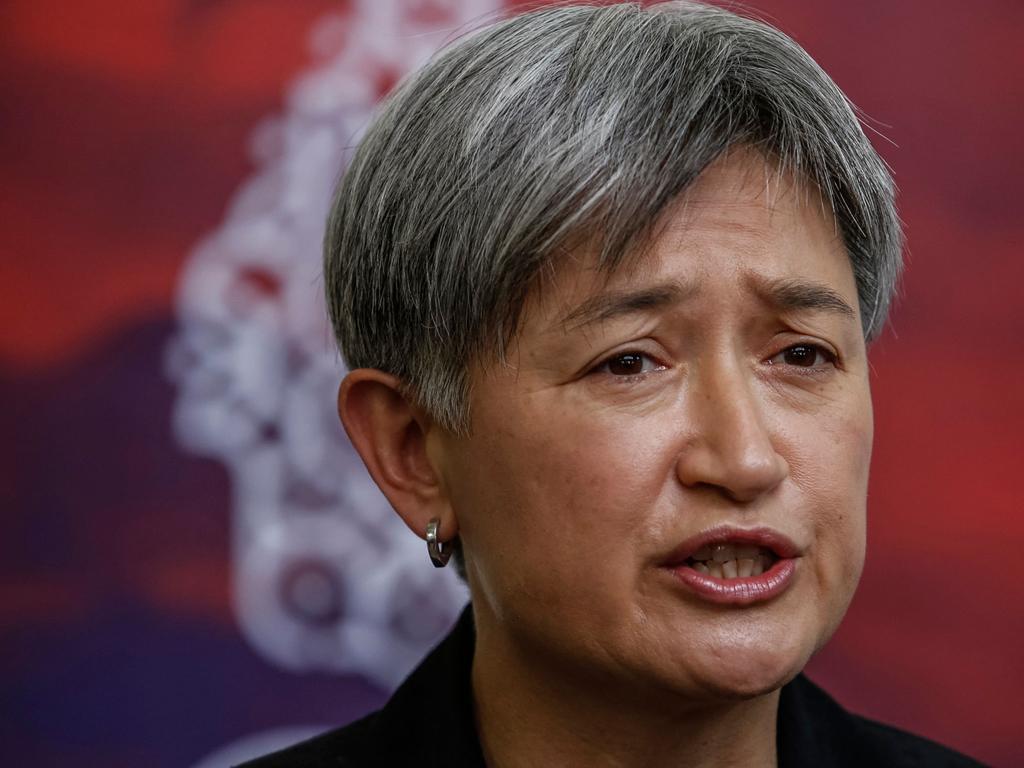Back in 2013, Wang exploded at Julie Bishop after she expressed mild criticism over Beijing’s declaration of an air defence identification zone in the disputed East China Sea.
“It felt like an ambush,” Bishop told me last year.
Wang’s outburst was extraordinary back in December 2013. One senior Australian foreign affairs official said he had “never in 30 years encountered such rudeness”.
It marked the beginning of a new period: the era of the Wolf Warrior diplomat.
Beijing’s diplomatic corps — “China’s Civilian Army”, as they refer to themselves — have always been assertive. However, eruptions of the sort Bishop experienced had become uncommon in the decades before Xi Jinping took office in 2013.
Now they are routine.
The China that Foreign Minister Wong and the Albanese government are dealing with considers such tantrums a legitimate diplomatic tool.
Another anti-diplomatic tool of Xi’s China is the total cessation of ministerial contact when things get difficult, as it did for almost three years with the Morrison government.
On Friday, in a sideline meeting at the G20 foreign ministers’ meeting in Bali, Wang finally deemed to speak to his Australian counterpart. Of course that is a good thing.
“It’s a first step for both our nations,’’ Senator Wong said after the meeting.
The Chinese, for their part, took more than 24 hours to give their account, as they waited to see what the Australian government said first.
Minutes before midnight on Saturday, Foreign Minister Wang gave his version in a statement, in which he said the “root cause” of the breakdown was the Coalition government’s “irresponsible words and deeds”.
“[Mr Wang] expressed hope that the Australian side would seize the current opportunity and take actions to improve bilateral relations,” China’s Foreign Ministry said in the statement.
Beijing tried a similar strategy with the Biden administration, putting all the blame for the US-China breakdown on Donald Trump and his team. More than 18 months on, US-China relations remain terrible.
Australian Foreign Minister Penny Wong’s meeting with her Chinese counterpart Wang Yi made the front of today’s China Daily:
— Will Glasgow (@wmdglasgow) July 9, 2022
“The meeting between Wang and Wong amid a strained Sino-Australian relationship was the first face-to-face one between the two countries’… since 2019†pic.twitter.com/acjDKxcvCd
Ahead of the meeting, Chinese foreign ministry spokesman explained what Beijing wanted.
“A reset requires concrete actions,” Chinese foreign ministry spokesman Zhao Lijian instructed.
That might be true, but Canberra is not after a “reset”. The goal, as Foreign Minister Wong explained, is to “stabilise” relations with China.
That is a good description of the difficult task. The Albanese government wants to put a floor under the tattered relationship.
Zhao may not have got the memo, but talk of another “reset” is an anathema in Canberra. Australia’s relations with China have already been reset. That happened in the Turnbull government, was furthered by the Morrison government and now continues in the Albanese era.

Banning Huawei from Australia’s 5G network, passing foreign interference legislation to limit Chinese government-backed activity in Australia, working with friends and partners to defend the international rules based system that Beijing is putting under stress — that was the reset.
And to be fair, it is understandable it enraged our biggest trading partner.
China has changed under Xi Jinping. But so, in response, has Australia. No wonder many in Beijing have whiplash.
Less than eight years ago, after President Xi addressed the Australian parliament, Tony Abbott lauded what he had heard as the Chinese leader’s commitment to make the People’s Republic of China “fully democratic” by 2050.
To put it politely, members of Australia’s political class were, at least until 2015, stunningly naive about the reality of China. Not anymore.
Good relations between the two countries are impossible right now. That is not the fault of Australian diplomacy. It is a function of deep and wide disagreements — many of which were raised by Wong in her meeting with Wang.
And how could Australia have good relations with a country that treats communication with its Foreign Minister as a concession, rather than just normal behaviour?
After the 2017-2022 reset, Australia-China relations deteriorated to an appalling state. The goal for the Albanese government is to try to transform an appalling Australia-China relationship into a bad Australia-China relationship or, if things go better than expected, a fraught Australia-China relationship.
Forget good. Work towards less bad.
Even that won’t be easy, but the meeting in Bali was a step in the right direction.







At least China’s Foreign Minister Wang Yi didn’t berate Penny Wong in front of a media pack in Bali. Her predecessors weren’t always so lucky.